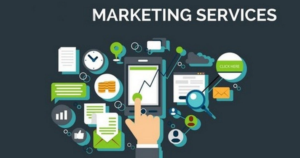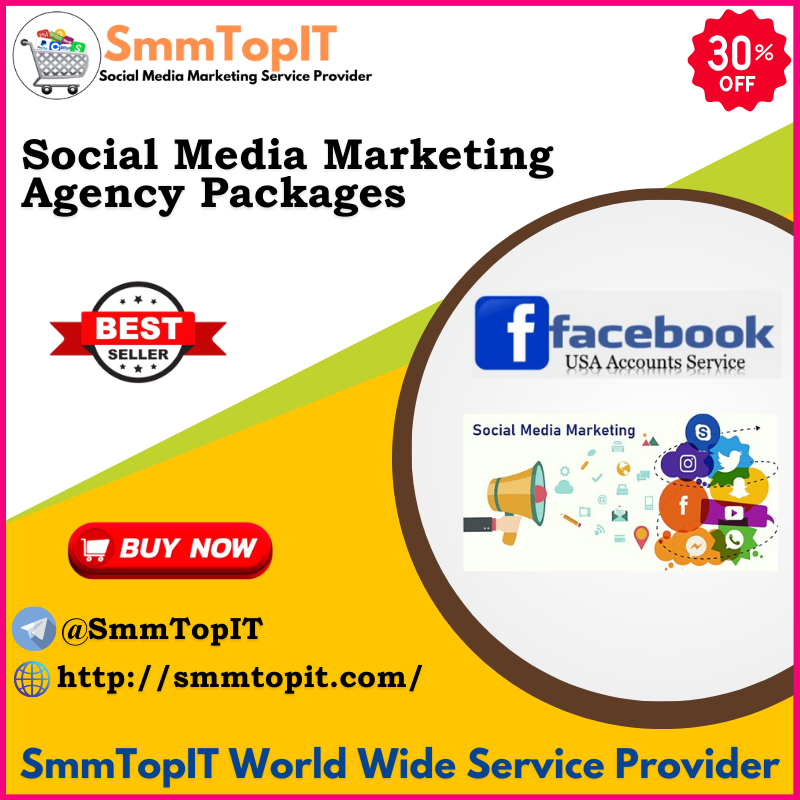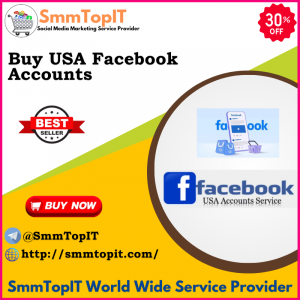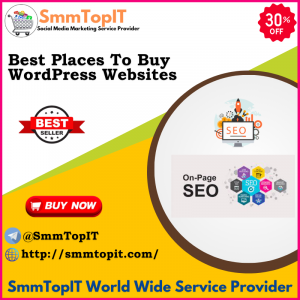USA Social Media Marketing Service
Looking for a USA social media marketing service? Our agency provides top-notch strategies to boost your online presence and reach more customers. With a comprehensive approach and proven tactics, we ensure your brand stands out in the competitive digital landscape, driving engagement and conversions. In today’s digital age, leveraging social media platforms is vital for any business. As a leading social media marketing agency in the USA, we understand the nuances of different platforms and know how to craft compelling content that resonates with your target audience. Social Media Marketing Agency Packages
Our team of experts stays ahead of the latest trends and algorithm updates, keeping your brand at the forefront of social media marketing. Whether it’s creating impactful ad campaigns, managing your social accounts, or fostering community engagement, we have the expertise to elevate your brand’s online presence. With our USA social media marketing service, you can harness the power of social media to maximize your brand’s visibility and drive meaningful results.
Benefits Of Social Media Marketing
Social media marketing has become an essential strategy for businesses to connect with their target audience and drive growth. With the increasing popularity of social media platforms, such as Facebook, Instagram, Twitter, and LinkedIn, businesses can tap into a vast online community to promote their products and services. By leveraging social media marketing, businesses can benefit from:
Increased Brand Awareness
One of the primary benefits of social media marketing is its ability to enhance brand visibility and recognition. By consistently engaging with your target audience through compelling content, promotions, and interactions, you can significantly boost your brand’s exposure. Social media platforms serve as a powerful tool to increase your brand’s reach and amplify your message, making it easier for potential customers to discover and recognize your brand. Social Media Marketing Agency Packages

Targeted Advertising
With social media marketing, businesses have the advantage of precise targeting options to ensure their message is seen by the right audience. Through advanced algorithms and user data, social media platforms enable businesses to define specific demographics, interests, behaviors, and locations to target their ideal customers. This powerful targeting capability maximizes the effectiveness of your advertising campaigns, allowing you to reach your intended audience with precision.
Engagement With Customers
Social media marketing provides an excellent opportunity to engage and interact with your customers directly. By creating valuable and interactive content, responding to comments and messages promptly, and actively participating in conversations, businesses can build strong customer relationships. This direct engagement fosters brand loyalty, encourages customer advocacy, and establishes trust, ultimately driving customer retention and repeat business. Social Media Marketing Agency Packages
Broader Audience Reach
Unlike traditional marketing channels, social media marketing removes geographical and physical barriers, enabling businesses to reach a broader audience. With billions of active users on various social media platforms, your brand can transcend boundaries and connect with potential customers around the world. Whether you’re a local business looking to expand or an international brand aiming for global exposure, social media marketing empowers you to reach a diverse range of individuals who may be interested in what you offer.
Improved Customer Insights
Social media platforms generate a wealth of data and analytics that provide valuable insights into your target audience’s behavior, preferences, and trends. By leveraging these insights, businesses can gain a deeper understanding of their customers’ needs and preferences, allowing them to tailor their marketing strategies accordingly. This valuable information helps businesses make informed decisions, optimize their campaigns, and ultimately deliver better experiences that resonate with their audience.

Popular Social Media Platforms
Social media marketing services in the USA capitalize on popular platforms like Facebook, Instagram, Twitter, LinkedIn, and TikTok to reach target audiences. These platforms offer diverse advertising options, engaging content formats, and precise targeting capabilities to boost brand visibility and drive conversions.
Facebook is the largest social media platform with over 2.7 billion monthly active users. It offers diverse ad targeting options and an extensive user base for businesses to connect with their audience in a professional and casual manner.
Instagram is a visually engaging platform with over 1 billion monthly active users. It is known for its focus on visual content like photos and videos and is an ideal platform for businesses targeting a younger audience.
Twitter is a real-time, conversational platform with approximately 330 million monthly active users. It is best suited for brands wanting to create engagement through news, updates, and quick interactions.
LinkedIn is known as the professional networking platform with around 310 million monthly active users. It is an excellent platform for B2B marketing and establishing thought leadership in the industry.
YouTube
YouTube is the leading video-sharing platform with over 2 billion logged-in monthly users, and it has become an important marketing tool for businesses to leverage the power of video content and reach a wide audience.

Choosing The Right Social Media Platform
Understanding Your Target Audience
Before diving into social media marketing, it’s crucial to understand your target audience. Identifying their demographics, preferences, and behaviors will help in selecting the most suitable platform to connect with them.
Evaluating Platform Features
Each social media platform offers unique features. Evaluating these features such as ad targeting options, post formats, and engagement tools is essential in choosing the platform that best aligns with your marketing goals.
Analyzing Competitor Presence
Conducting a comprehensive analysis of your competitors’ presence on social media can provide valuable insights. Understanding where your competitors are active can help in deciding on which platforms to focus your marketing efforts. Social Media Marketing Agency Packages
Setting Marketing Objectives
Clearly defining your marketing objectives is crucial in platform selection. Whether it’s brand awareness, lead generation, or customer engagement, the chosen platform should support your marketing objectives effectively. Social Media Marketing Agency Packages
Considering Budget Constraints
Marketing budget plays a significant role in choosing the right social media platform. It’s essential to consider the cost of advertising, content creation, and any additional expenses associated with each platform.
Creating A Social Media Strategy
Crafting a social media strategy is crucial for maximizing the benefits of social media marketing services. By analyzing target audiences, setting specific goals, and selecting suitable platforms, businesses can effectively engage and expand their online presence. Developing a coherent plan tailored to the brand’s objectives ensures a strategic and successful social media campaign.
Creating a Social Media Strategy In today’s digital age, having a strong social media presence is crucial for businesses to thrive and succeed. A well-crafted social media strategy can help you reach and engage with your target audience, increase brand awareness, and drive more traffic to your website. However, developing an effective strategy requires careful planning and execution. In this blog post, we will explore the key components of creating a social media strategy that will help you achieve your marketing goals and deliver measurable results.
Defining Goals And Kpis
Before diving into social media marketing, it is important to define your goals and key performance indicators (KPIs). These goals and KPIs will serve as a roadmap for your social media efforts, guiding your content creation and engagement strategies. Are you aiming to increase brand awareness? Or perhaps generate leads and conversions? Whatever your objectives may be, clearly defining them will ensure that your social media activities are aligned with your business growth aspirations.
Developing Content Plan
Once your goals and KPIs are established, the next step is to develop a comprehensive content plan. This involves identifying the type of content that will resonate with your target audience, as well as the platforms that will best showcase your brand’s unique voice. Whether you choose to focus on blog posts, videos, infographics, or a combination of various media formats, it is crucial to create consistent, high-quality content that adds value to your audience’s lives. Remember to tailor your content to each social media platform, considering the specific characteristics and preferences of their respective users.
Establishing Brand Identity
Your social media strategy cannot be effective if it does not align with your brand identity. Establishing a strong and consistent brand identity across all social media platforms will help you stand out from the competition and build a loyal following. Define your brand’s values, tone of voice, and visual aesthetics, and ensure that they are reflected in your social media posts. Consistency in your imagery, language, and messaging will help create a recognizable and trustworthy brand that resonates with your audience.
Scheduling And Frequency
Consistency is key when it comes to social media marketing. Establishing a consistent posting schedule will help you maintain engagement with your audience and stay top of mind. Use social media management tools to plan and schedule your posts in advance, ensuring that they are published at the optimum times for your target audience. It is also important to find the right balance between posting frequently enough to stay visible, and avoiding overwhelming your audience with an excessive number of posts.
Measuring Success
To gauge the success of your social media strategy, it is crucial to regularly measure and evaluate your performance. Monitor key metrics such as engagement rate, reach, click-through rates, and conversions. By analyzing these metrics, you can identify what is working and what can be improved. It is also essential to track your progress towards your defined goals and KPIs. Ongoing analysis of your social media data will provide valuable insights and allow you to make informed decisions to optimize your strategy and achieve the best results. Crafting a strong social media strategy requires careful planning, execution, and constant adaptation.
By defining your goals, developing a content plan, establishing your brand identity, scheduling your posts effectively, and measuring your success, you can ensure that your social media efforts contribute to your overall marketing objectives and drive tangible results. Start implementing these strategies today and watch your brand soar to new heights in the world of social media marketing.

Content Creation And Curation
Welcome to our blog post on content creation and curation, an essential component of a successful social media marketing strategy. In today’s fast-paced digital world, creating and curating engaging content is crucial for grabbing the attention of your audience and building a loyal following. In this section, we will explore various aspects of content creation and curation, from identifying relevant topics to leveraging user-generated content. Social Media Marketing Agency Packages
Identifying Relevant Topics
Choosing the right topics for your social media content is vital in attracting and engaging your target audience. Researching current trends, industry news, and your audience’s interests can provide valuable insights into what content will resonate with them. Consider using keyword research tools to identify relevant topics and leverage popular hashtags to increase your content’s visibility.
Writing Engaging Copy
Compelling copy is the lifeblood of your content strategy. By writing engaging copy, you can captivate your audience and drive them to take action. Craft headlines and captions that grab attention and evoke curiosity. Use vivid language, storytelling techniques, and a conversational tone to connect with your audience on a personal level. Remember to keep your copy concise and insightful, making every word count.
Designing Eye-catching Visuals
In a visually-driven online world, eye-catching visuals can make your social media content stand out. Use visually appealing images, infographics, and animations to complement your copy and convey your message effectively. Ensure that your visuals are consistent with your brand’s identity and optimized for different social media platforms. Utilize tools like Canvas or Adobe Spark to design stunning visuals even if you don’t have a design background.
Using Video And Live Streaming
Video content continues to dominate the social media landscape. Incorporate videos into your social media strategy to engage your audience in a dynamic and interactive way. Whether it’s pre recorded videos or live streaming sessions, video content allows you to showcase your brand’s personality and expertise. Create tutorials, product demonstrations, behind-the-scenes glimpses, or engaging interviews to keep your audience entertained and informed.
Leveraging User-generated Content
One of the most effective ways to build trust and authenticity is by incorporating user-generated content (UGC) into your social media strategy. Encourage your followers to create and share content related to your brand, products, or services. Showcase customer testimonials, reviews, or user-submitted photos to demonstrate social proof. UGC not only produces fresh and authentic content but also fosters a sense of community around your brand.
To sum it up, content creation and curation is an ongoing process that requires careful planning, creativity, and responsiveness to your audience’s interests. By identifying relevant topics, writing engaging copy, designing eye-catching visuals, utilizing video and live streaming, and leveraging user-generated content, you can create a compelling social media presence that captivates your audience and drives results.
Community Management
Community Management is an essential component of any effective social media marketing strategy. It involves engaging with your audience, building relationships, and fostering a sense of community around your brand. In this section, we will explore the various aspects of Community Management, including responding to comments and messages, handling customer complaints, building relationships with influencers, encouraging user participation, and managing your online reputation.
Responding To Comments And Messages
Responding to comments and messages is a crucial part of community management. It shows your audience that you value their input and are actively listening to what they have to say. Whether it’s a question, feedback, or a compliment, responding promptly and thoughtfully helps to strengthen the bond between your brand and your followers.
When responding to comments and messages, keep these tips in mind:
- Respond in a timely manner to show that you prioritize customer engagement.
- Show empathy and understanding towards any concerns or issues raised.
- Provide helpful and informative responses that address the commenter’s needs or questions.
- Encourage further conversation by asking follow-up questions or seeking additional feedback.
Handling Customer Complaints
Handling customer complaints efficiently and effectively is crucial for maintaining a positive brand image. When customers voice their dissatisfaction, it’s an opportunity to turn their negative experience into a positive one. By addressing their concerns promptly and finding a satisfactory resolution, you can salvage the relationship and even create new brand advocates.
To handle customer complaints:
- Listen attentively to their concerns and acknowledge their feelings.
- Apologize sincerely, even if the issue wasn’t directly caused by your brand.
- Offer a solution or compensation that demonstrates your commitment to resolving the problem.
- Follow up to ensure the customer is satisfied with the resolution.
Building Relationships With Influencers
Influencers have the power to amplify your brand’s reach and influence your target audience. Building authentic relationships with influencers can result in increased brand awareness, credibility, and ultimately, higher conversions. Engage with relevant influencers by:
- Identifying influencers in your industry or niche that align with your brand values.
- Engaging with their content through likes, shares, and meaningful comments.
- Collaborating with influencers on campaigns or partnerships that benefit both parties.
- Maintaining a long-term relationship by providing mutual support and value.
Encouraging User Participation
User participation is vital for fostering a sense of community and creating brand advocates. Encourage your audience to actively engage with your brand by:
- Asking questions and seeking opinions through polls or surveys.
- Running contests or giveaways that require user participation.
- Sharing user-generated content and giving credit to participants.
- Hosting live events or webinars that allow for real-time interaction.
Managing Online Reputation
Your online reputation plays a significant role in shaping how people perceive your brand. Managing your online reputation involves monitoring mentions of your brand, responding to reviews, and addressing any negative sentiment. Take the following steps to effectively manage your online reputation:
- Regularly monitor mentions of your brand on social media platforms.
- Respond promptly and tactfully to all reviews, both positive and negative.
- Address any negative feedback or complaints in a professional and empathetic manner.
- Take necessary actions to rectify any issues and prevent future negativity.
- Encourage satisfied customers to share their positive experiences through testimonials or reviews.
Paid Advertising On Social Media
When it comes to promoting your business, paid advertising on social media platforms has proven to be an effective strategy. With millions of users actively engaged on platforms like Facebook, Instagram, and Twitter, social media marketing allows you to reach a broader audience and drive targeted traffic to your website. One of the key aspects of social media advertising is paid advertising, where businesses pay to display their ads to specific audiences. Let’s explore the different aspects of paid advertising on social media to help you maximize your marketing efforts.
Targeting Specific Audiences
One of the major advantages of paid advertising on social media is the ability to target specific audiences. Social media platforms offer various targeting options, allowing you to define your audience based on demographics, interests, behaviors, and more. By identifying your target audience and tailoring your ads to their preferences, you can ensure that your message reaches the right people at the right time, increasing the chances of conversion. Targeting specific audiences can help you minimize ad spend wastage and maximize the return on investment for your advertising campaigns.
Creating Compelling Ad Campaigns
Creating compelling ad campaigns is crucial to attracting the attention of potential customers. With paid advertising on social media, you have the opportunity to design visually appealing ads that convey your brand’s message effectively. Use eye-catching images or videos, compelling copy, and clear calls-to-action to engage your audience and encourage them to take the desired action. Craft your ads with the specific platform and its user demographics in mind to ensure maximum impact.
Leveraging Retargeting
Retargeting is a powerful strategy that allows you to display ads to individuals who have shown interest in your brand before. Through the use of cookies and tracking pixels, social media platforms enable you to retarget users who have visited your website, engaged with your content, or interacted with your previous ads. By retargeting these individuals, you can remind them of your brand and encourage them to complete a purchase or take another desired action. This helps to increase brand awareness, build trust, and boost conversions.
Monitoring Ad Performance
Regularly monitoring the performance of your social media ads is essential to ensure their effectiveness. Social media platforms provide detailed analytics and reporting tools that allow you to track key metrics such as impressions, click-through rates, conversions, and more. By analyzing this data, you can gain insights into the performance of your ads, identify areas for improvement, and optimize your campaigns accordingly. Monitoring ad performance helps you make data-driven decisions and allocate your advertising budget more effectively.
Optimizing Ad Budget
Optimizing your ad budget is crucial to maximize the results of your paid advertising efforts. By continuously analyzing the performance data of your ads and experimenting with different targeting options, creative elements, and ad formats, you can identify the most effective strategies for reaching your goals. Allocating your budget to the top-performing ads and adjusting your spending based on their performance ensures that you are maximizing the return on investment and making the most of your advertising budget.
Social Media Analytics
Social media analytics is a crucial component of any successful social media marketing strategy. By analyzing data and tracking key metrics, businesses can gain valuable insights into their audience’s behaviors and preferences, and identify areas for improvement to maximize their ROI.
Essential Metrics To Track
When it comes to social media analytics, tracking essential metrics is vital for understanding the performance of your social media efforts. Some of the key metrics to track include:
- Engagement rate
- Reach and impressions
- Click-through rate
- Conversion rate
- Social media shares and mentions
Using Analytics Tools
Utilizing advanced analytics tools such as Google Analytics, Facebook Insights, and Hootsuite can provide in-depth data on social media performance. These tools enable businesses to track and measure the success of their social media campaigns and make informed decisions based on real data.
Analyzing Data For Insights
By analyzing the collected data, businesses can gain valuable insights into their audience’s behavior, preferences, and interactions with their social media content. This data can inform content creation, posting schedules, and overall social media marketing strategies.
Identifying Areas For Improvement
Through data analysis, businesses can identify areas for improvement in their social media marketing efforts. Whether it’s refining content strategies, adjusting posting times, or targeting specific audience segments, actionable insights can be derived from thorough analysis.
Measuring Roi
Measuring the return on investment (ROI) from social media marketing efforts is essential for understanding the effectiveness of the strategies deployed. This can help businesses allocate resources efficiently and optimize their social media campaigns for maximum impact.

Influencer Marketing
Influencer marketing has become an essential component of social media marketing strategies. Collaborating with influencers can help businesses reach their target audience, build brand credibility, and drive engagement. In this section, we’ll explore the key aspects of influencer marketing, including finding influencers in your niche, building relationships, negotiating partnerships, tracking performance, and assessing collaboration impact.
Finding Influencers In Your Niche
When identifying potential influencers, it’s crucial to focus on individuals who resonate with your brand’s values and have a strong following within your niche. Utilize social media listening tools to identify relevant conversations and trending personalities. Look for alignment in audience demographics and engagement metrics to ensure a strong fit for your brand.
Building Relationships With Influencers
Cultivating authentic relationships with influencers is key to successful collaboration. Engage with their content, provide value, and show genuine interest in their work. Offer them opportunities for mutual promotion and encourage open communication to build trust and rapport.
Negotiating Partnerships
When approaching influencers for partnerships, clearly outline the value proposition and benefits for both parties. Be transparent about expectations, deliverables, and compensation. Establish a mutually beneficial agreement that aligns with both the influencer’s brand and your marketing objectives.
Tracking Influencer Performance
Utilize tracking tools and analytics to monitor the performance of influencer-generated content. Measure key metrics such as reach, engagement, and conversions to assess the impact of their efforts. Regularly review performance data to optimize future collaborations and ensure a positive return on investment.
Assessing Impact Of Influencer Collaborations
After the completion of influencer campaigns, assess the overall impact on brand awareness, audience engagement, and conversion rates. Evaluate qualitative feedback and quantitative data to determine the success of the collaborations. Use this insight to refine future influencer strategies and maximize the value of these partnerships.
Mobile Marketing And Social Media
In today’s digital age, mobile technology has become an integral part of our lives. Almost everyone has a smartphone, and they use it not only for communication but also for accessing social media platforms. This presents a unique opportunity for businesses to target their audience through mobile marketing and social media. By leveraging these two powerful tools, businesses can boost their online presence and engage with their customers on a more personal level.
Optimizing Content For Mobile
With the majority of social media users accessing their accounts through mobile devices, it’s crucial for businesses to optimize their content for mobile viewing. This means creating visually appealing and easily digestible posts that are compatible with smaller screens. Using a responsive design, businesses can ensure that their content adjusts seamlessly to different devices, providing an optimal viewing experience for their audience.
Using Location-based Marketing
Location-based marketing is a powerful strategy that combines the use of mobile technology and social media to target customers based on their geographical location. By utilizing technologies such as GPS and geotagging, businesses can promote their products or services to individuals in specific areas. This type of targeted advertising allows businesses to reach potential customers who are more likely to visit their physical stores or take advantage of location-specific offers.
Leveraging Social Media Advertising
Social media advertising is an effective way to reach a wider audience and promote your brand. By running targeted ads on platforms such as Facebook, Instagram, and Twitter, businesses can reach users who match their ideal customer profile. These ads can be tailored to specific demographics, interests, and behaviors, ensuring that they are shown to the right people at the right time. With mobile devices being the primary way users access social media, businesses can leverage this channel to increase brand awareness and drive conversions.
Implementing Mobile-friendly Features
Along with optimizing content for mobile, businesses should also implement mobile-friendly features on their websites and social media profiles. This includes responsive design, fast page loading speeds, and easy navigation. By making it easy for users to browse and interact with their platforms on mobile devices, businesses can provide a seamless user experience and encourage engagement. Mobile-friendly features also improve search engine rankings, as search engines prioritize websites that are optimized for mobile.
Tracking Mobile Engagement
To gauge the effectiveness of your mobile marketing and social media efforts, it’s essential to track mobile engagement metrics. Platforms like Google Analytics offer insights into user behavior, such as the number of visits, bounce rates, and conversions from mobile devices. This data helps businesses identify trends, make informed decisions, and optimize their strategies for better results. By analyzing mobile engagement metrics, businesses can fine-tune their campaigns, ensuring they are reaching their target audience effectively and maximizing their return on investment.
Integration With Other Marketing Channels
In today’s digital landscape, successful marketing strategies rely on integration across various channels. Social media has emerged as a powerful tool for brands to connect with their audience, but its true potential is unlocked when integrated with other marketing channels. By aligning social media with other strategies such as email marketing, SEO, content marketing, PR campaigns, and event marketing, businesses can maximize their outreach and achieve remarkable results.
Aligning Social Media And Email Marketing
Email marketing remains one of the most effective ways to engage with customers and nurture leads. By integrating social media and email marketing efforts, brands can amplify their reach and connect with a larger audience. From social media links in emails to promoting email newsletters on social platforms, these strategies work synergistically to foster brand loyalty and encourage conversions. Sharing compelling content, exclusive offers, and personalized experiences via social media and email marketing can help businesses stay top-of-mind and nurture lasting customer relationships.
Integrating Social Media In Seo Strategies
In the ever-evolving world of SEO, social media plays a crucial role in boosting website visibility and driving organic traffic. By integrating social media with SEO strategies, businesses can harness the power of social signals and increase their online presence. Promoting website content through social media shares, gaining backlinks from social platforms, and engaging with social influencers can significantly improve search engine rankings and enhance brand visibility. A well-planned integration between social media and SEO can lead to an exponential growth in website traffic and conversions.
Coordinating Social Media With Content Marketing
Content marketing is an essential component of any successful digital marketing campaign. By coordinating social media efforts with content marketing strategies, businesses can extend the reach of their content and engage with a wider audience. Sharing engaging blog posts, informative videos, and valuable infographics on social media platforms allows brands to amplify their content’s visibility and drive traffic back to their website. Ensuring consistent messaging and promotion across social media and content marketing efforts create a cohesive brand experience, building trust and credibility among the target audience.
Connecting Social Media To Pr Campaigns
Public relations campaigns are designed to raise awareness, shape perceptions, and enhance brand reputation. Integrating social media into PR strategies can elevate their effectiveness by leveraging the power of social networks and building conversation around the brand. Sharing press releases, engaging with journalists and influencers, and promoting brand mentions on social media platforms can extend the reach of PR campaigns and increase their impact. By connecting social media to PR efforts, businesses can effectively manage their brand narrative, engage with their audience, and enhance their overall reputation.
Leveraging Social Media In Event Marketing
Events provide a unique opportunity for brands to connect with their target audience in a more personalized and experiential way. By leveraging social media in event marketing, businesses can extend the event’s reach beyond physical boundaries and engage with a wider audience. Creating event-specific hashtags, live streaming event activities, and encouraging attendees to share their experiences on social media can ignite conversations and generate buzz, both during and after the event. Integrating social media with event marketing creates a dynamic and interactive brand presence, expanding the event’s impact and fostering long-term relationships with attendees.
Staying Updated With Social Media Trends
Staying updated with social media trends is vital for businesses looking to maximize their online presence. With the constantly evolving landscape of social media, it is crucial to have a pulse on the latest trends and developments. By keeping up-to-date, businesses can adapt their social media strategies to stay ahead of the competition and engage with their target audience effectively.
Following Industry Thought Leaders
One of the best ways to stay informed about the latest social media trends is by following industry thought leaders. These experts have their finger on the pulse of what’s happening in the world of social media. They often share valuable insights, tips, and updates about new features and strategies. Following industry thought leaders on platforms like Twitter and LinkedIn can provide a constant source of information, guidance, and inspiration.
Attending Webinars And Conferences
Webinars and conferences dedicated to social media marketing are an excellent resource for staying updated with the latest trends. These events offer the opportunity to hear from industry experts, learn from successful case studies, and get insider tips. Attending these online or in-person events allows businesses to gain a deeper understanding of emerging strategies and technologies that can enhance their social media marketing efforts.
Monitoring Competitors’ Strategies
Watching what your competitors are doing on social media can be a valuable source of insights. By monitoring their strategies, businesses can identify trends and tactics that are working well within their industry. This can help inform their own social media marketing approach and avoid falling behind. Tools like social media monitoring software can provide valuable data and analytics on competitors’ content, engagement metrics, and overall strategy.
Exploring Emerging Platforms
While it’s essential to focus on the major social media platforms, businesses should also keep an eye on emerging platforms. Being an early adopter of a new platform can provide a competitive advantage and allow businesses to reach new audiences. Exploring emerging platforms gives businesses the opportunity to experiment, learn, and adapt their social media strategies to connect with users in innovative ways.
Experimenting With New Features
Social media platforms are constantly introducing new features and updates. Experimenting with these features can help businesses understand how they can be leveraged to drive engagement and expand their reach. Whether it’s Instagram’s Reels or Facebook’s Live Video, staying updated with new features ensures businesses are maximizing the potential of their social media presence. By experimenting with these features, businesses can not only stand out from the competition but also provide value to their audience in new and exciting ways.
Social Media Crisis Management
In today’s fast-paced and interconnected world, social media has become a powerful platform for businesses to engage with their audience. However, with this opportunity also comes the risk of potential crises that can escalate quickly and damage a brand’s reputation. That’s where effective social media crisis management comes into play. By preparing a crisis management plan, responding to negative feedback, managing viral controversies, and addressing customer concerns, businesses can effectively navigate through these challenges and rebuild trust with their audience.
Preparing A Crisis Management Plan
When it comes to social media crisis management, being proactive is key. It is essential to have a well-defined plan in place, outlining the steps to be taken in the event of a crisis. This plan should include:
- Designating a crisis management team responsible for monitoring and responding to social media crises.
- Identifying potential risks and preparing pre-approved responses to different crisis scenarios.
- Establishing a clear chain of command and communication channels within the team.
- Regularly monitoring social media platforms for any signs of potential crises.
Responding To Negative Feedback
Negative feedback is a reality of social media, and how businesses respond to it can make a significant impact on their reputation. When dealing with negative feedback:
- Respond promptly and professionally to address the concerns raised.
- Listen actively to understand the customer’s perspective and empathize with their concerns.
- Offer solutions or alternatives to resolve the issue and maintain transparency throughout the process.
- Take the conversation offline if necessary, through private messages or customer support channels.
- Learn from the feedback and make improvements to prevent similar issues from occurring in the future.
Managing Viral Controversies
In the age of social media, controversies have the potential to spread like wildfire. When faced with a viral controversy:
- Act swiftly to address the issue and clarify any misconceptions.
- Monitor the situation closely and actively engage with the audience to provide accurate information.
- Take ownership of any mistakes made and outline steps being taken to rectify the situation.
- Avoid engaging in heated debates or arguments but focus on providing factual information and respectful responses.
Addressing Customer Concerns
Customers’ concerns should be taken seriously and addressed promptly to prevent any escalation. When addressing customer concerns:
- Listen actively and express empathy towards their concerns.
- Respond promptly and transparently, providing clear and concise information.
- Offer solutions or alternatives to resolve the issue and ensure customer satisfaction.
- Follow up with the customer to ensure their concerns have been adequately addressed.
By implementing these strategies, businesses can not only navigate through social media crises but also rebuild trust with their audience. Social media crisis management is about being prepared, responsive, and proactive in your approach to minimize the impact of crises while maintaining a positive brand image.
Frequently Asked Questions For USA Social Media Marketing Service
What Is Social Media Marketing?
Social media marketing involves using social platforms to promote a brand, engage with audiences, and drive website traffic.
How Can Social Media Marketing Benefit My Business?
Social media marketing can increase brand awareness, generate leads, boost website traffic, and enhance customer engagement.
Which Social Media Platforms Should I Focus On For Marketing?
The choice of social media platforms depends on your target audience and business goals. Popular options include Facebook, Instagram, Twitter, and LinkedIn.
How Does Social Media Marketing Improve Seo?
Social media signals, like shares and engagement, can indirectly impact SEO by increasing website visibility and attracting more organic traffic.
What Strategy?t Are The Key Components Of A Successful Social Media Marketing
A successful strategy includes setting measurable goals, understanding the target audience, creating engaging content, and consistently monitoring and analyzing performance.
How Much Does Social Media Marketing Cost?
The cost of social media marketing varies depending on factors like campaign objectives, ad spend, and agency fees. It can be tailored to fit your budget.
Can Social Media Marketing Attract New Customers?
Yes, social media marketing can attract new customers through targeted advertising, influencer collaborations, and engaging content that drives interest and engagement.
How Can I Measure The Success Of My Social Media Marketing Campaigns?
Metrics like reach, engagement, conversions, and ROI can be tracked using social media analytics tools to assess the effectiveness of your campaigns.
Is It Necessary To Hire A Social Media Marketing Agency?
While you can do social media marketing in-house, hiring an agency can provide expertise, save time, and ensure an effective strategy for your business.
How Long Does It Take To See Results From Social Media Marketing?
Results can vary, but with consistent effort, businesses can start seeing measurable results from their social media marketing efforts within a few weeks to a few months.
Conclusion
Social media has become an integral part of any effective marketing strategy. With USA Social Media Marketing Service, businesses can harness the power of platforms like Facebook, Instagram, Twitter, and LinkedIn to reach their target audience and drive engagement. By creating valuable and engaging content, optimizing posts for search engines, and using analytics to measure success, businesses can optimize their social media presence and drive results.
Stay ahead of the competition and take advantage of the incredible opportunities offered by social media marketing.






Reviews
There are no reviews yet.